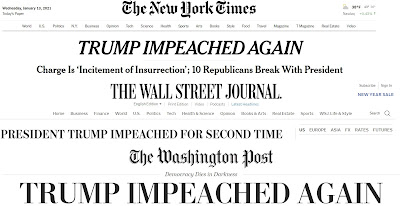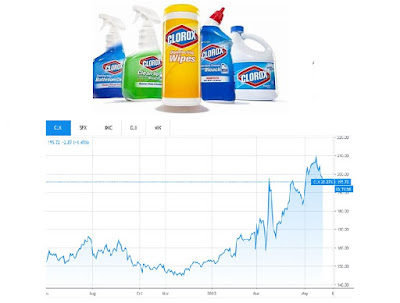Buy your AAPL and TSLA options now.
Sunday, January 31, 2021
Earnings Weeks
Buy your AAPL and TSLA options now.
Chocolates & Nobel Prizes
Came across this old study from the New England Journal of Medicine (2012) that asks the very important question: Does a country's chocolate consumption affect the number of Nobel Laureats it produces?
The study found that there was a strong, significant correlation (r=0.791, p<0.00001) between the amount of chocolate consumption per capita and the number of Nobel laureats per 10 million persons in a total of 23 countries:
The article had three explanations:
Hypotheis 1: Since cholocolate helps improve cognitve functions, more chocolate intake in a population provides a more abundant "fertile ground" for producing Nobel winning minds.
Hypothesis 2: Reverse causation (aka the elitist explanation). Smarter people eat more chocolate because they are better aware of the benefits of falavanols in dark chocolate.
Hypothesis 3: We just don't know. This was a purely statistical exercise, not a randomized trial-- it's too difficult to identify a "plausible common denominator." That's seems to be the right explanation. Fun nonetheless.
Thursday, January 28, 2021
Robinhood Will Do Anything to Help Hedge Funds #Rigged
Yesterday we wrote about over levered hedge funds getting in some BIG trouble as the WSB crowd bid up highly shorted names like GME and AMC. And probably more than one hedge fund was on the brink of insolvency...Queue the panic at financial institutions and their benefactors at the Fed...
...So retail brokers, like Robinhood and TD Ameritrade, came to the rescue. Trading in GME, AMC, BB, BBY, EXPR, etc. (you get the idea) was halted this morning! The hedgies and institutional investors could still trade them, of course. Whether Robinhood meant to or not, by closing the gate on its users, it arbitrarily called the top (at least for today) and precipated heavy losses for those customers and saved the hedge funds, who were able to close out their shorts in relative peace without losing their firms. (The most shorted stocks-HF VIP long basket dynamic effectively flipped today)
The condemations was justifiably swift and widespread:
And Ted Cruz agreed with AOC!
CNBC tried its best to defend its institutional backers but got embrassingly called out by the Winkelvie for not doing their jobs...
This evening Robinhood lamely reinstated trading on the above names...so now the same hedge funds can go super long those stocks. Thanks Robinhood!
Wednesday, January 27, 2021
Hedge Fund Carnage in Jan?
Melvin Capital was one of the hottest hedge funds around coming into 2021. The $12.5b fund returned 50% net of fees in 2020. Just three weeks later, after an epic short squeeze, it needed a ~$2.8b bailout from fellow hedge funders (and Melvin investors) Ken Griffin and Steve Cohen.
But the Redditors' GameStop blizkreig may be burying many other hedge funds as well. After all hedgies have to short stuff to "earn" their shrinking 2 & 20 fees. Not only were many of them in the same GameStop short, but now Redditors are using the same playbook and squeezing other overly shorted stocks too. The below (H/T ZeroHedge) chart shows how the most shorted stocks have ripped higher, presumably forcing HFs to cover their positions.
At the same time to stay "hedged," funds have to sell their long positions. The Goldman Sach's VIP basket of stocks most widely held by hedge funds have tanked this month. Losses on both sides, long and short, particularly when your are levered can be very painful.
So, after the best year in a decade for hedge funds, January could be one of its worst months.
Tuesday, January 26, 2021
Momentum Wins Big in 2020
Venn has a nice recap of 2020 factor performances...and it's no contest. Momentum smoked all other factors and its own historical averages. Not a surprise when the market falls 34% in 30 days and then roars back 68% in the next 280. There were a couple of hiccups in June and November, but Momentum was up pretty much the whole year. (Click chart to enlarge)
Wednesday, January 13, 2021
Trump, Congress Make History
May you live in interesting times...History is being made at a rapid clip. In one week we've had: riots in the Capitol, social media ban on the President and an impeachment (a record 2nd time for one president...in the same year...in one day...with bipartisan support)
Here are the historic headlines from the major newspapers:
Tuesday, January 12, 2021
12 Monkeys: Is Bruce Willis THE Superspreader?
A couple of weeks ago I rewatched Terry Gilliam's 1996 cult-classic 12 Monkeys, starring Willis and Pitt. In the film the planet is decimated by a mysterious virus and Willis plays, James Cole, a time-traveler sent from the future to figure out how it happened. Cole painfully goes through numerous time loops to find the villianous Uberspreader...we'll perhaps this is the guy he was looking for all along:
Apparently, Willis was asked to leave a L.A. Rite Aide pharmacy after he refused put on a face cover...because, you know, as Pitt's Jeffery Goines babbles to Cole: "...[Jim] says, I don't believe in germs. Germs is just a plot they made up so they can sell you disinfectants and soaps."
Friday, January 8, 2021
Goldman Sachs Planned to 'Storm the Hill' First!
Not literally, of course. (After all, Government Goldman Sachs is always doing 'God's work' and loves government.)
The WSJ reports that the venerable bank was sponsoring an event next week for small business owners to meet with lawmakers. As part of the program they had come up with an enthusiastic and unfortunately timed "Storm the Hill" slogan that was prominently displaced on T-shirts and other parenphelia given to partcipants. But after last Wednesday's actual storming of the Hill, GS quickly rebranded the Jan 13 event, now called The Virtual Capitol Hill Day. It also asked participants to hide their swag...and presumably to never speak of its contents again.
Thursday, January 7, 2021
Scary Poll: Insurrection or Liberation?
Unfortunately, it depends...
YouGov Direct conducted a poll of 1,397 registered voters Wednesday night about the mayhem in the US Capitol. A majority (62%) of those asked considered the pro-Trump supporters who attacked the Congress a threat to democracy (good!). However, while 93% of Democracts and 55% Independents (only?) saw it that way, only 28% (!!) of Republicans felt the same. In fact, a greater percentage of Republicans (45%) supported the storming of the Capitol than opposed it (43%). Scary stuff. (Click to enlarge).
Monday, January 4, 2021
The Year in Markets in One Chart
A great chart from the Visual Capitalist showing how major asset classes performed in 2020 (click to enlarge). Not surprising that in an extremely turbulent year, investors sought safety in the most traditional of assets: silver and gold.
Sunday, January 3, 2021
Understanding Our Strange Economy
The NYT has an insightful article that helps explain Why Markets Boomed in a Year of Human Misery. Based on national accounting data, it reveals a complicated economic picture where policy, markets and consumer behavior intersected in unexpected ways.
It begins with an analysis of the National Income and Product Accounts, which captures how Americans are earning and spending. What it shows is that, relative to the same period in 2019, personal income of Americans (in aggregate) actually increased during this historical pandemic by $1 trillion!
So, what did Americans do with $1.56 trillion of additional savings? For one thing, they held on to more cash. Deposits at commercial banks are up ~20% since March. Others bought houses, causing housing prices to rise 8% nationally. Many others put money in the stock market, helping the S&P 500 rise 70% from the February lows to end the year up 16%. For the most daring (like the Robinhood day-traders) the stock market became a fun casino and stocks like Tesla its biggest slot machines.
To be sure the Fed played a key role in helping cut short a nasty bear market. Powell & Co. were instrumental in stabilizing financial markets in March when credit markets briefly froze and threatened the sustainability of the economic system. Yet, the dynamics around savings described above may have played a more sustained role in this wild stock market rally that left many puzzled and angry at perceived moral hazard...But who knows? And who knows how stocks will react once everyone gets vaccinated and returns to normal(ish) life. Does the savings trend reverse and money flow out of the stock market? Or are peoples' views of consumption and savings durably modified?
And it's worth remembering the benefits of aggressive fiscal and monetary policies were not experienced equally across economic strata. Those who avoided major economic damage during the pandemic were largely the same people who were also doing better before it.
Saturday, January 2, 2021
Boston Strong: Ben Runs on Dunkin'
Summers: The Case Against $2,000 Stimulus Checks
Larry Summers raised some eyebrows a week ago when, in a Bloomberg interview, he came out against the Democrats' (and Trump's) idea of $2,000 universal checks. In a follow-up Bloomberg op-ed, he lays the economic case for his thinking.
Summers is all for assisting those impacted by Covid-19, including extended unemployment insurance and eviction protections. But he argues that the majority of Americans who are working don't necessarily need it. Because total employee compensation is "now running only $30 billion per month behind the pre-Covid baseline." Measures in the new stimulus bill will add $150 billion per month to household incomes to more than offset this deficiency.
Furthermore, because of the stimulus bills already passed in 2020 household incomes relative to the economy's potential is already at "abnormally high levels" as shown below:
Friday, January 1, 2021
Tesla Mania!
It was manic year for financial markets and nothing exemplified the the fear, greed and absurdity of the stock market better than Telsa Inc. The automaker's shares went on a tear in 2020, resulting in Telsa becoming not just the highest valued car company in the world by far (even without selling a lot of cars), but also the one of the biggest companies in the world outright. And Elon Musk became the second richest person on earth.
At the same time, the chart below highlights the divide between Tesla's sky high valuations (PE of 1,398) and its fundamentals:
Carlos Supreme: Alcaraz Achieves Career Grand Slam
On Sunday, Carlos Alcaraz made history when he became the youngest man ever to complete a career Grand Slam after defeating Novak Djokovic ...

-
Russian oligarch Roman Abramovich purchased Chelsea FC in 2003 for £140 million (£60 million for the club plus £80 million of debt). His la...
-
This is more a discussion than a "debate" between two giants of the economics profession. Both are Democrats and agree on the basi...
-
Even though many of us are still working from home and days of the week can sometimes meld into one another, the weekend still seems to (and...



























